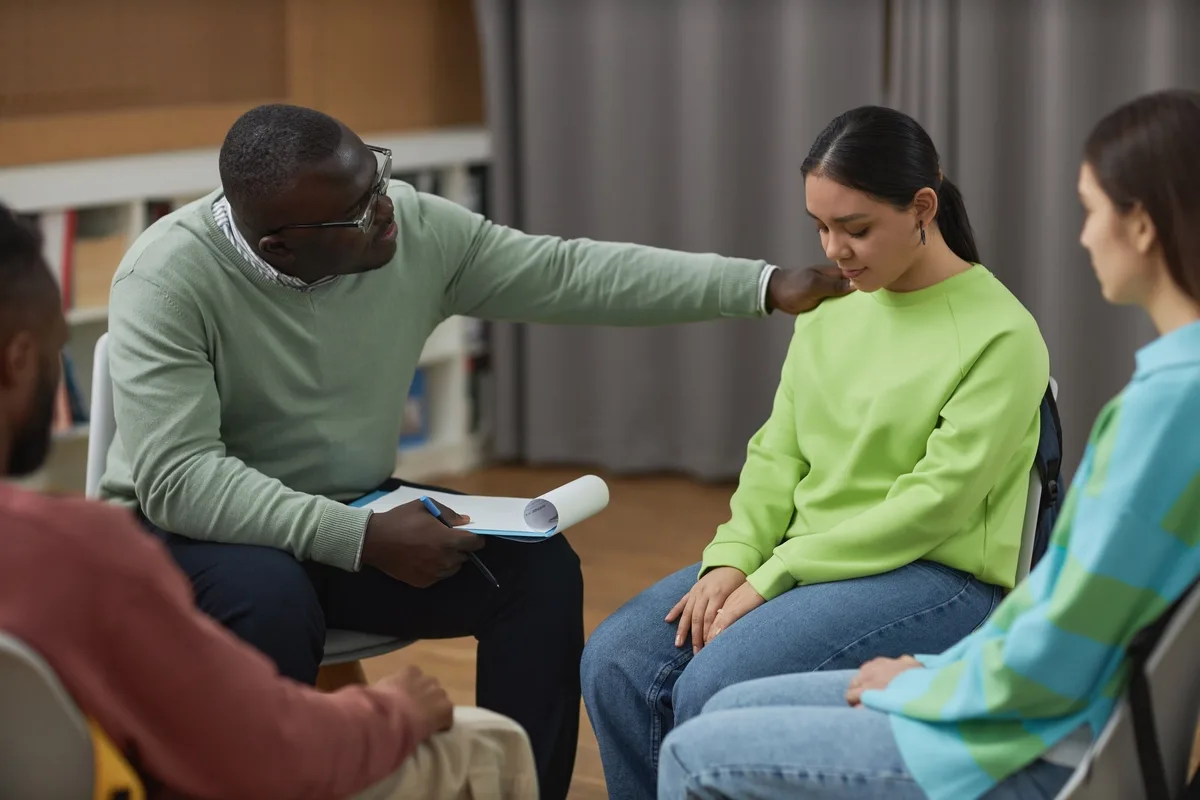24/7 Helpline:
(866) 899-221924/7 Helpline:
(866) 899-2219
Learn more about PTSD Treatment centers in Ackerly
PTSD Treatment in Other Cities

Other Insurance Options

ComPsych

Absolute Total Care

Choice Care Network

Molina Healthcare

PHCS Network

Covered California

Holman Group

EmblemHealth

Ceridian

Premera

Horizon Healthcare Service

Access to Recovery (ATR) Voucher

UMR

Carleon

AllWell

GEHA

Optima

CareFirst

MVP Healthcare

WellCare Health Plans










